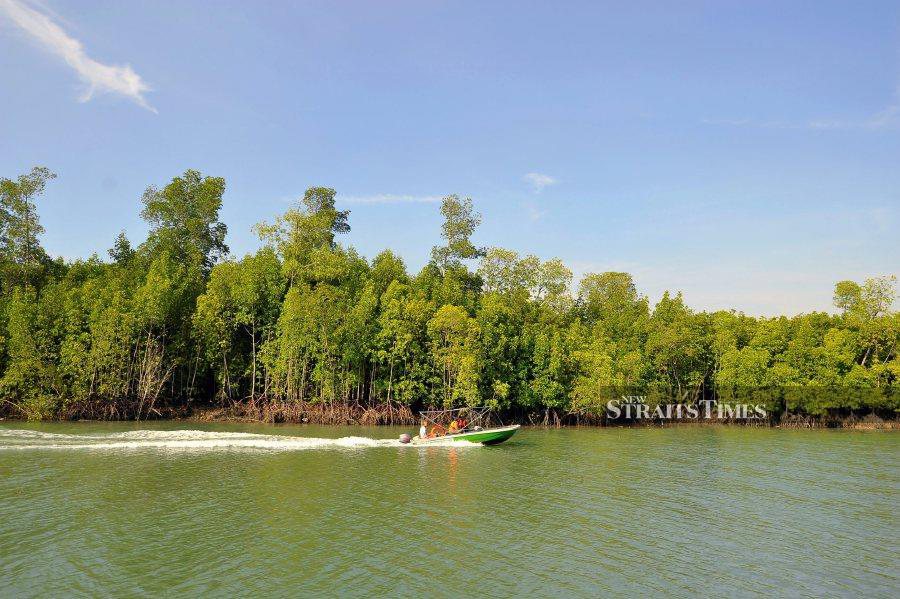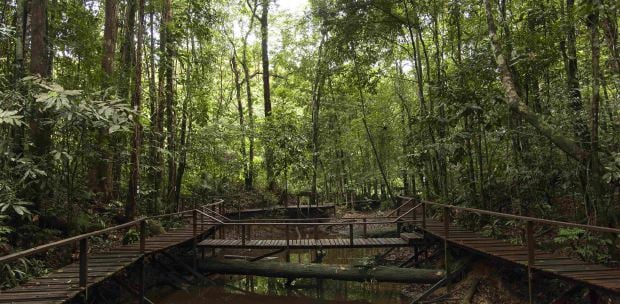THE latest landmark appeal to protect nature far better than we do comes from renowned economist Professor Sir Partha Dasgupta of Cambridge University, lead author of an independent report for the British government that urges a new global approach in measuring economic performance.
His recommendations include adopting, alongside short-sighted gross domestic product ( GDP) indicators of economic growth, measures of the state of goods and services that sustain life and regulate the climate — water, soil, air and rainforests, for example.
"We are part of nature, not separate from it. Nature is an asset, just as produced capital (roads, buildings and factories) and human capital (health, knowledge and skills) are assets. Like education and health, however, nature is more than an economic good: many value its very existence and recognise its intrinsic worth too."
His report dramatically documents our failure to manage nature sustainably. Between 1992 and 2014, for example, produced capital per person doubled, and human capital per person increased by about 13 per cent globally.
But, the stock of natural capital per person declined by nearly 40 per cent. In other words, while humanity has prospered immensely in recent decades, that prosperity was achieved at a devastating cost to nature.
Maintaining the world's current living standards would require 1.6 Earths.
The study calls this imbalance between our demands and nature's supply the "Impact Inequality".
Rising extinction rates, for example, are already up to 1,000 times higher than the natural rate, undermining nature's productivity, resilience and adaptability, which in turn fuels extreme risk and uncertainty for our economies and wellbeing.
"Biodiversity", the report notes, "enables nature to be productive, resilient and adaptable. Just as diversity within a portfolio of financial assets reduces risk and uncertainty, so diversity within a portfolio of natural assets increases nature's resilience to shocks, reducing the risks to nature's services. Reduce biodiversity, and nature and humanity suffer."
The devastating impacts of Covid-19 and other emerging infectious diseases — driven by land-use change and species exploitation — could be just the tip of the iceberg if we continue on our current path.
Many ecosystems, from tropical forests to coral reefs, have already been degraded to the tipping point, with catastrophic consequences ahead for our economies and wellbeing.
And it is costly and difficult, if not impossible, to coax an ecosystem back to health once it has tipped into a new state.
Actions now to halt and reverse these trends would be vastly less costly than delay and achieve wider societal goals, including addressing climate change and alleviating poverty.
At the heart of the problem: deep-rooted, widespread institutional failure.
Nature's worth to society is not reflected in market prices because much of it is open to all at no monetary charge.
These pricing distortions have led us to invest relatively more in other assets, such as produced capital, and underinvest in our natural assets.
Moreover, aspects of nature are mobile and some, such as in the soils, are invisible or silent.
The effects of our actions on ourselves, including our descendants, are often therefore hard to trace and go unaccounted for, a market failure and a broader institutional failure too.
Governments exacerbate the problem by paying people more to exploit nature than to protect it. Global subsidies that damage nature are estimated at US$4 trillion to US$6 trillion per year.
And we lack the institutional arrangements needed to protect global public goods, such as the ocean or the world's rainforests.
Let us hope that Dasgupta's report makes a major impression on decision-makers preparing for the world summits on biodiversity (COP15) and climate change (COP26) scheduled later this year. We cannot make more hollow pledges or fail to follow through again.
Some serious initiatives are under way. A recent one is the High Ambition Coalition (HAC) for Nature and People, a group of more than 50 countries co-chaired by Costa Rica and France, and with the United Kingdom as Ocean co-chair, championing a global deal for nature and people that can halt the accelerating loss of species, and protect vital ecosystems that are the source of our economic security.
Let us hope that more countries will join HAC, in particular, those in Asean where precious biodiversity exists.
Dasgupta argues: "The discipline to draw on nature sustainably must, ultimately, be provided by us as individuals. Many people have grown distant from nature. Our education systems should introduce nature studies from the earliest stages of our lives and revisit them in secondary and tertiary education."
The writer is ambassador and science adviser to the Campaign for Nature and chairman of Atri Advisory






